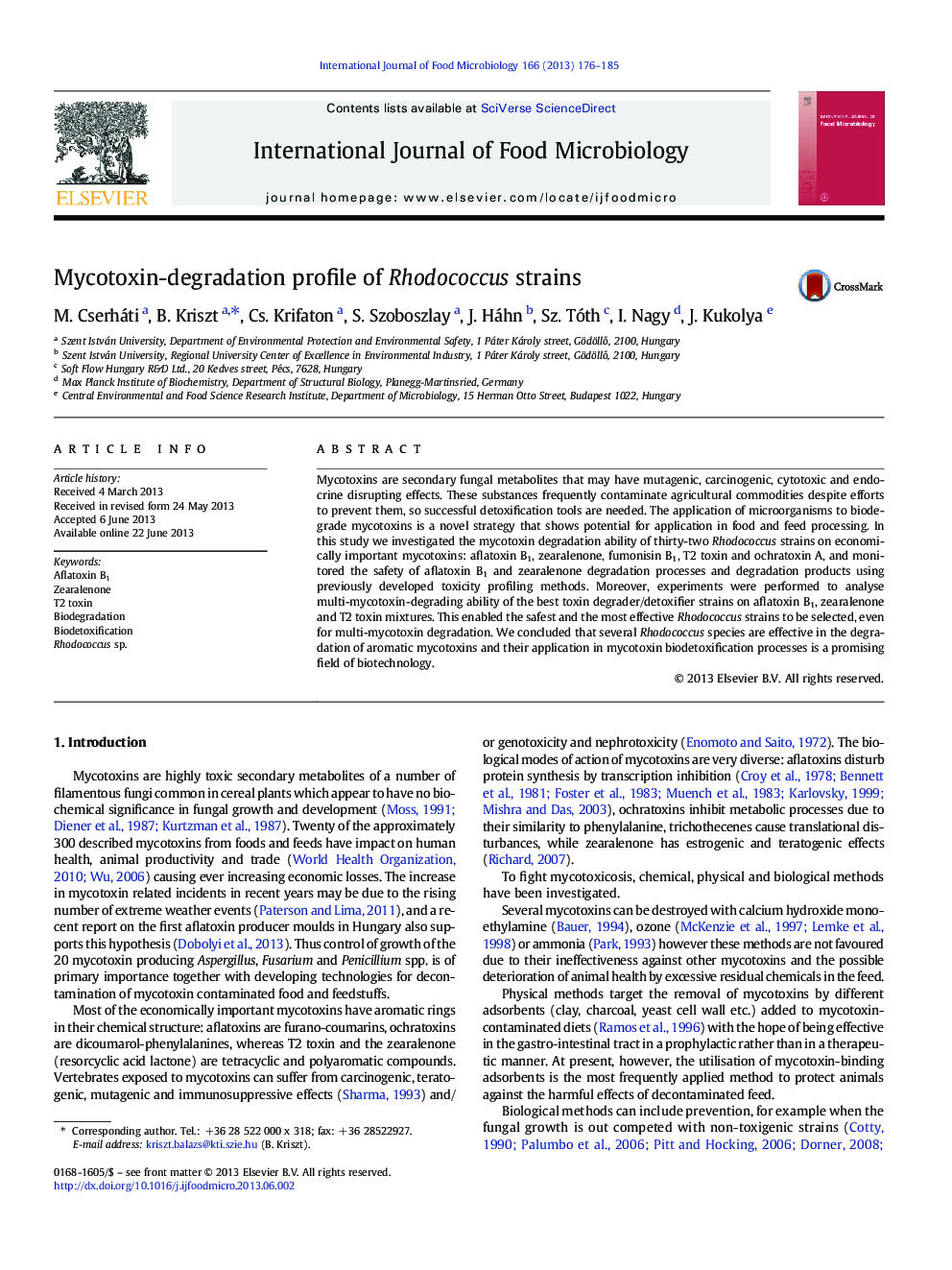| Article ID | Journal | Published Year | Pages | File Type |
|---|---|---|---|---|
| 6290203 | International Journal of Food Microbiology | 2013 | 10 Pages |
â¢We screened the the mycotoxin degradation ability of thirty-two Rhodococcus strains.â¢We monitored the degradation safety of AFB1 and ZON with regards on byproducts.â¢We selected Rhodococcus strains for AFB1, ZON and T-2 toxin degradation.â¢We selected Rhodococcus strains for simultaneous multi-mycotoxin degradation.â¢We concluded that Rhodococcus sp. are effective for degrading aromatic mycotoxins.
Mycotoxins are secondary fungal metabolites that may have mutagenic, carcinogenic, cytotoxic and endocrine disrupting effects. These substances frequently contaminate agricultural commodities despite efforts to prevent them, so successful detoxification tools are needed. The application of microorganisms to biodegrade mycotoxins is a novel strategy that shows potential for application in food and feed processing. In this study we investigated the mycotoxin degradation ability of thirty-two Rhodococcus strains on economically important mycotoxins: aflatoxin B1, zearalenone, fumonisin B1, T2 toxin and ochratoxin A, and monitored the safety of aflatoxin B1 and zearalenone degradation processes and degradation products using previously developed toxicity profiling methods. Moreover, experiments were performed to analyse multi-mycotoxin-degrading ability of the best toxin degrader/detoxifier strains on aflatoxin B1, zearalenone and T2 toxin mixtures. This enabled the safest and the most effective Rhodococcus strains to be selected, even for multi-mycotoxin degradation. We concluded that several Rhodococcus species are effective in the degradation of aromatic mycotoxins and their application in mycotoxin biodetoxification processes is a promising field of biotechnology.
